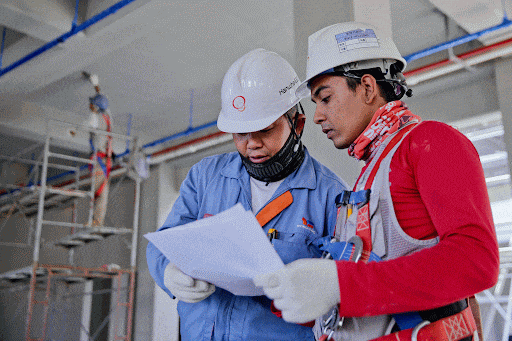Introduction:
We, as a human, are always in a dire need of meaningful and useful resources to meet our daily needs. Cultural civilizations, human transformations, and revolutions such as the industrial revolution have made the use of resources to a greater extent.
There are basically two types of resources:
- Renewable resources
- Non-renewable resources
Liquefied petroleum gas (LPG) is a non-renewable energy source. It is and has always played a useful role in human society. It certainly has many advantages which will be discussed later in this article.
Liquefied petroleum gas (LPG) consists mainly of propane (C3H8) with other hydrocarbons such as propylene, butane, and butylene, in various mixtures. However, in general, this mixture is mainly propane. The components of LPG are gases at average temperatures and pressures.
Note: It was used as early as 1860 as a portable fuel source, and its production and consumption for both domestic and industrial use have expanded ever since.
LPG usage for the UK inhabitants:
LPG is used as a fuel in a range of applications including in heating and cooking appliances, industrial applications, vehicles, and as a propellant and refrigerant. LPG can be obtained primarily as propane, butane, or a mixture. Britain and many other nations of the world use the exact same mixture of gases as their LPG.
What is LPG safety?
LPG safety is a process of safe interaction with the gas itself as it has several repercussions when it comes in contact with humans. The transportation of this gas in a closed cylinder is itself a major risk. So, there are several techniques to minimize this danger. It can be overcome so that its usage can be made successful.
When using LPG cylinders
There are several ways to protect the LPG and, of course, the cylinder it contains:
- Always ensure adequate ventilation and never use indoors or in confined spaces.
- Always read the manufacturers operating instructions.
- Do not connect or disconnect cylinders near a naked flame.
- Do not use LPG in windy conditions.
- Always keep cylinders cool and away from flames, sparks, and heat.
- Only use approved or certified hoses and connections designed for gas – never use homemade ones.
What are LPG safety tips?
Liquefied Petroleum Gas is a risky gas to possess, therefore, many useful measures should be taken before it can be utilized. It is classified as highly flammable as it contains more than 0.1% of Butadiene(C4H6).
Several ways for its safe usage are discussed below:
- Make sure your gas connections are tight.
- Turn on the cylinder valve and test for leaks from a gas expert certified from organization like MultiCerts. Get into the habit of regularly checking for leaks every time you use your LPG cylinder.
- If bubbles start forming, there is a gas leak.
- Turn off the gas cylinder valve. Disconnect the left-hand thread connection and check that the faces are clean.
- Check the rubber Bull Nosing or O-Ring is not damaged and is present on the hose that connects the appliances to the LPG cylinder valve. Leaks are caused by damaged or missing O-Rings or rubber Bull Nosing or where connections are not tight.
- Turn the gas back on and test everything again with soapy water.
- After you have finished using your LPG appliance/cylinder, you should always close the cylinder valve first before turning off the LP Gas appliance.
- Keep your LPG appliance/cylinder clean and in good condition.
What are LPG precautions?
In the United Kingdom, there is a proper law and order scenario that implements the rules as per its codes of practice for LPG. There are 30 COP’s for LPG in the UK.
UKLPG’s Codes of Practice, which provide guidance on best engineering and safety practices, are amongst the most recognized in the world. The Codes cover transportation, storage, installation, operations, and utilization of LP Gas. They have been developed by experts from within the industry in consultation with the UK Health & Safety Executive and other government authorities.
There are several precautionary measures for the installation of LPG appliances at the home or anywhere as per the needs. Some are discussed below:
- Cylinders in use to be kept clear of all heat sources.
- Equipment to be inspected prior to use, with records of the inspection retained, and
any defects identified prior to use.
- Cylinder valves only to be opened with a proper key and if the valve is damaged
no attempt to be made to open it.
- Hoses are to be secured by clips that are approved by the equipment manufacturer
and hoses are not to be coiled around cylinders or their regulators as this can cause damage.
- Appropriate ventilation to be provided whenever cylinders are in use and cylinders
to be maintained in clean condition.
- Grease or oil is never to be allowed to come into contact with the cylinder.
Therefore, after applying all the above-mentioned techniques, safety, and precautionary protocols, we can take many advantages of LPG as it has now become a major aspect of our lives. So, it is the need of the hour that safety protocols must be adopted in a professional manner so that no harm can be done.
As Jerry Smith once said:
“Safety is not expensive, it is priceless.”
About the author:
Hey, this is Shazaf Khan. I have been performing my services in the context of content writing for many years. I have renowned expertise in mechanical engineering. I graduated in Mechanical Engineering from a highly reputable university. I have published a few articles on this very topic. I have profound knowledge in the domain of Gas Safety Certificates and its relatable branches. I have earned quite a distinction through content writing.

| [donate]
| Help keep news FREE for our readersSupporting your local community newspaper/online news outlet is crucial now more than ever. If you believe in independent journalism,then consider making a valuable contribution by making a one-time or monthly donation. We operate in rural areas where providing unbiased news can be challenging. |

















